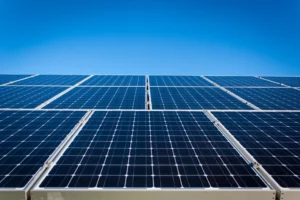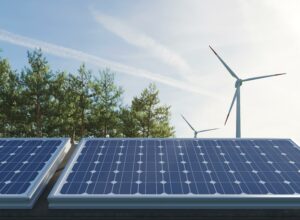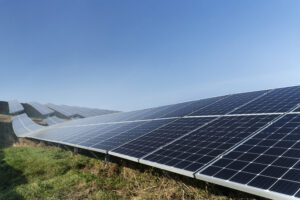Being a renewable energy solutions expert, I believe that one of the most exciting developments in sustainable living today is the integration of solar power and electric vehicles (EVs). With the integration of solar energy with EVs, we can tackle global energy challenges, reduce our carbon footprint, and welcome a cleaner, more cost-effective future.
Solar power, paired with electric vehicles, creates the next frontier in sustainability. Battery technologies such as solid-state and lithium-sulfur have enhanced the efficiency and strength of EVs. Combining the two technologies creates an almost self-sustaining power that can significantly reduce reliance on fossil fuels. With the installation of solar panels, EVs can be charged at a customer’s home or at designated solar-powered charging stations to reduce costs and meet green goals.
Cost Savings
Solar energy dramatically reduces reliance on grid electricity. By generating your own power, you’re shielded from fluctuating electricity prices. Over time, the investment in solar panels pays off through substantial savings on charging costs. Charging an EV with solar power costs only a fraction of traditional fuel or grid electricity, resulting in lower operating expenses. This cost-effectiveness makes solar energy an excellent choice for budget-conscious EV owners.
Environmental Benefits
The use of solar energy for EVs drastically reduces carbon emissions and supports global efforts in the fight against climate change. The solar-powered EVs are a harmonious blend of two green technologies that will set the course for a clean future. Shifting to solar energy means that people and businesses can be pioneers in reducing their carbon footprint while actively supporting sustainable development goals.
Energy Independence
Solar energy allows EV users to generate their own electricity, not depending on other sources of energy for a while. This provides insulation from the unpredictability of fuel prices and power cuts, granting more control over your requirements. Whether it is with rooftop solar panels or an off-grid solar system, self-reliance is important.
Scalability and Versatility
Solar systems can be adapted according to the varying energy requirements. Solar power installations can be added when increasing power requirements exist, such as when it is for the home or even for the business. Resilient from residential rooftops to the massive commercial setups, the solar energy system makes it fit for almost anything.
Higher Inundation of EVs
The ownership cost to most people would still seem very high for countries such as India, presenting a constraint toward EV uptake. Solar-powered charging solutions provide an eco-friendly solution because of decreased energy costs, thereby appealing to more persons with cheaper prices becoming cheaper for most people while moving into EV to speed up the transition into the sustainable transportation system.
Government-provided incentives and subsidies
Across the world, governments are promoting the adoption of EVs and solar energy with monetary benefits. In India, these incentives include exemptions on road taxes, income tax, and subsidies for solar panel installation. Similarly, in other parts of the world, federal tax credits and grants add up to encourage this change. This enables people and companies to invest in clean energy options more easily.
Technological Advancements
The technological advancements in solar and battery enable the integration of solar with EVs to be very easy. Technological advancements like bifacial solar panels, thin-film solar cells, and AI-optimized energy systems maximize efficiency. Portable solar panels and MPPT (Maximum Power Point Tracking) technology enable hassle-free, efficient EV charging.
Increase in Property Value
Solar panels are not only a smart investment but also enhance the value of your property. With the rise of eco-conscious homebuyers, homes with solar panels and energy-efficient features are increasingly sought after. Adding solar installations, along with battery storage, makes your property more attractive and ensures long-term energy independence.
Reliability During Power Outages
The power supply during an outage can be made reliable through solar energy with battery storage. The extra energy produced in the daytime can be stored for night or emergencies. This ensures continuous EV charging and reduces dependence on grid electricity, even in the most remote locations.
Future Trends
The future of solar-powered EVs is bright, with innovation fueling their mass adoption. The innovations, such as Sono Motors and Lightyear, are already manufacturing solar-powered EVs that do not require much charging via external sources. Similarly, this smart grid technology will contribute toward energy distribution in a real-time, efficient manner. All this, therefore, comes together for the development of a better, sustainable, and resilient energy system to be realized by the owners of EVs.
Why look into solar-powered EVs?
With the growing interest in electric vehicles, powering your EV with solar energy is much more than a green choice. It makes pure financial sense. A range of benefits, from the savings on high-cost solutions to energy independence, are achievable for individuals and businesses alike. To that end, combining solar and EV technologies supports international efforts at cutting carbon emissions, conserving resources, and promoting sustainability.
It is the right time to think of moving into solar-powered EVs, as governments are offering incentives and the technology is advancing along with growing awareness. So go for solar power, embrace its strength, and drive into tomorrow, which is going to be sustainable.






